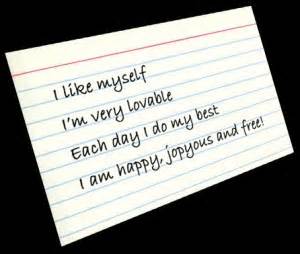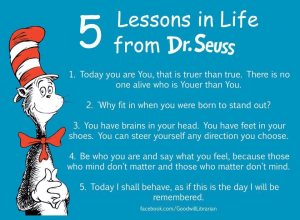Our self-worth is one of our greatest gifts. When we believe in ourselves, we are willing to try new things, change direction should we need to, and take action on things we face on our life journey. We are happier and more content, more motivated, and more successful in what we do. When we believe in ourselves, our value remains intact and anything is possible!
The following story of The Old Man and the Watch is a great reminder of self-worth and not selling ourselves short:
There was an old, wise man who grew sicker by the day. He felt that his journey on Earth was about to come to an end. However, his son was still a young man and had yet to reach his full potential. And so the father took it upon himself to teach his son the ways of the world before death came knocking.
One morning, the old man called for the young man and handed him a watch. The watch was a family heirloom that had been passed down for generations. The boy had never seen it before so he didn’t quite know what to make of it.
“What am I supposed to do with this watch, father?” asked the boy.
“I want you to go to town and take the watch to the jeweler. Show him the watch and ask him how much it’s worth. But don’t accept any offer. Instead, come back home with the watch.”
The boy did as he was instructed. He marched into town to hear what the jeweler had to say. After the watch was appraised, the boy went back home to his father.
“So, what happened? How much money did the jeweler offer for the watch?”
His son, looking defeated, spoke while scratching his head — “I don’t know, father. I tried haggling with the jeweler but in the end, he didn’t offer much. He said it was only worth $100 because it’s so old.”
The father was nodding his head, seemingly in agreement with the jeweler’s assessment.
His son continued, “The jeweler said he was taking a gamble on buying the watch and that he’d have a hard time finding a buyer. And if I’m being honest, I kind of agree with him. I don’t think this watch is anything special.”
“Okay,” the father said. “Now take the watch to the pawnshop. See how much you can get for the watch.”
His son replied, “What do you hope to sell it for? I don’t think the pawnshop is going to make you a better offer than the jeweler.”
“Just humor me, son. Your best friend owns a pawnshop, right? Don’t you think he’ll give you a fair offer?”
In his mind, the boy disagreed. But he didn’t want to argue with his ailing father so he did the job anyway. He even went above and beyond and went to see two friends who were both working in pawnshops. However, he still went home looking defeated.
“Father, I went to a couple of friends who work in pawnshops. But they both gave me worse offers. The best I got was $20. They told me that the watch had problems. There were scratches that even I didn’t notice after carrying it with me all day.”
The father, yet again, nodded in agreement.
“So what do you want me to do? Should I go back to the jeweler? After all, he is willing to pay more money.”
“No,” said the old man. “I want you to go to the museum. There’s a woman there that I want you to talk to. I sense that this person will have a better idea of what this watch is really worth.”
His son, now starting to get annoyed by all this back-and-forth, reluctantly agreed to walk all the way to the museum to look for his father’s friend. “What is this person hoping to say about this watch that I haven’t heard already?” he said to himself.
After talking to the museum lady, he suddenly went out the door and ran back home to tell his old man the good news. Night had finally set in by the time he got home.
“You won’t believe it! My trip was a success. We finally got an amazing offer.”
“Oh, really?”
“Yeah, the lady said that this watch is one of a kind. She said she never thought she’d see one in person. She said the museum would like to buy it from us so that they can put it on display.”
The old man, with a grin on his face, asked — “So how much did she say it was worth?”
“$35,000! I hadn’t realized I was holding on to something that valuable. With that much money, our family can really enjoy life. To think the jeweler and the pawnshops I visited had it so wrong. Should we sell it?”
“I’m glad for you, son,” said his dad. “You can do what you want with that watch after I’m dead. What’s more important to me right now is that you learned something about value and self-worth.”
“What do you mean?” asked his son.
“You see—just like that watch—you too have value. And if you go to the wrong places, you’ll never know just how much value you have. Even your own friends can get it wrong. But there’s always a place you can go to where everyone will see your real value. That’s the lesson I’m trying to teach you.”
The son was wondering about the point of doing all this. But upon hearing his father’s explanation, he had a newfound respect for the guy.
His father continued, “One day you’ll have a family of your own. You’ll have your own kids — maybe you’ll get lucky and have a daughter like you always wanted. To ensure their happiness, you’ll have to teach them the same things that I’m teaching you right now.”
The old man’s son learned a lot that night. Their family may not be rich, but that didn’t matter. His father’s words were far more valuable than the watch he spent all day getting appraised.
Indeed. Self-worth is important. It is the opinion we have about and the value we place upon ourselves. Self-worth begins with liking who we are. Liking who we are means that we:
- display a confidence in and have a clear understanding of our self and our abilities
- are comfortable ‘in our own skin’
- embrace our strengths and unique abilities
- recognize our weaknesses (and either accept them or work to shore them up)
- commit to our self
- accept who we are and move on from there
- do not worry about what others think of us
- are in charge of our thoughts
Many of us may struggle with liking who we are; with our self-worth. After all, today’s society is one of comparisons, so it is easy to see if we don’t feel our best how we might not see ourselves in the best of terms. When the stock in ourselves begins to drop, to give our self-worth a boost, we can:
- Accept and love who we are.
- Avoid comparisons with others.
- Be kind to ourselves (complimentary and rewarding).
- Be supportive of ourselves.
- Treat ourselves with dignity and respect.
- Practice positive self-talk (positive affirmations helps with this).
- Challenge our inner critic.
- Take charge of our feelings.
- Act in a positive way.
- Practice positive self-talk (positive affirmations helps with this).
- Picture the self we want to be and doing things to make that picture a reality.
- Set small goals and achieving them (accomplishment builds confidence).
- Prepare for what we want to be/do (increasing and improving skills).
- Respond rather than react.
- Be fearless (rather than fear mistakes, we need to see them as learning opportunities and things to change to become better at something).
- Concentrate on successes and moving on from failures.
- Share our talents with others.
Remember, when we believe in ourselves, as we travel along our life journey we will be happier, more content, more motivated, and maybe even more successful. Self-worth is a confidence booster that can carry take us far in our journey. Glenn Beck (author and radio host) tells us, “Sometimes the hardest part of the journey is believing you’re worthy of the trip.” We are all worthy of the trip. We all need to think like the story’s museum lady’s assessment of the watch really seeing ourselves as “one of a kind” and moving full steam ahead making the most of our strengths and our talents. It’ll make all the difference in the world.


































































